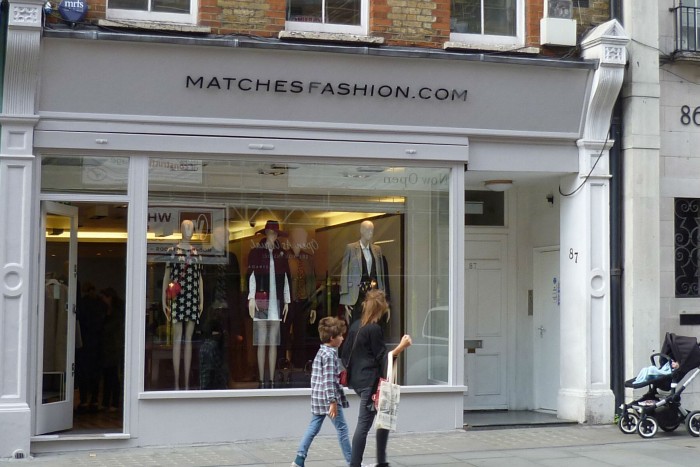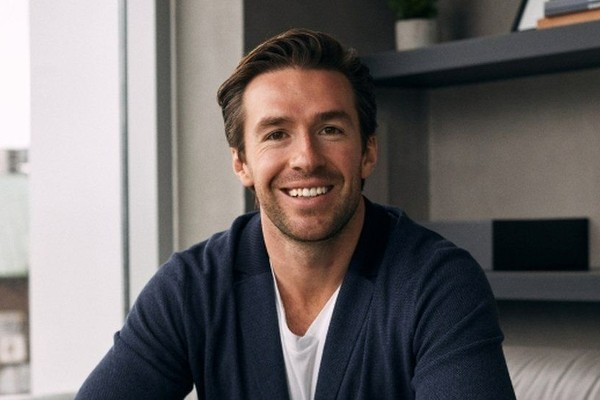Next is ramping up its rivalry with Frasers as it looks to launch a new premium fashion platform to target aspirational shoppers.
Seasons, which will go live before Christmas, and will stock a range of premium and affordable luxury brands such as Ganni, Joseph and A.P.C that Next doesn’t currently sell.
Chief executive Lord Wolfson described it as “servicing the premium customers we’ve got better – giving them brands we think that they’ll love”.
It’s just one of the growth avenues the high street stalwart is chasing as it inches to closer to reaching £1bn in profit – and another venture that puts it head-to-head with Frasers Group.
The Mike Ashley-controlled retail empire has been making gains in the premium fashion sector for several years thanks to the growth of its multi-branded retailers like Flannels, with its premium lifestyle division now accounting for £1.2bn in sales.
With Next now entering the market, how much of a threat will its Seasons platform be?
Tapping into aspirational luxury
 Next revealed that it was turning its focus to “more aspirational brands” after reporting “exceptionally strong demand for its existing premium brands such as Reiss” and a “significant portion of customers actively seeking premium and luxury products”.
Next revealed that it was turning its focus to “more aspirational brands” after reporting “exceptionally strong demand for its existing premium brands such as Reiss” and a “significant portion of customers actively seeking premium and luxury products”.
As such, it is set to launch its new sub-site, Seasons, which it explained would “offer a range of premium and affordable luxury brands that are not available on the next.co.uk site”.
“There’s a customer out there that are buying expensive brands from Next – they’re a bigger segment of our customers than we thought,” says Wolfson.
“Now that we’ve started to sell more premium brands like Reiss, we have found that within our 8 million customers there are a significant number who are interested in more premium product and we think we can serve those customers better by putting these brands on our website.”
It comes amid a shift in how shoppers buy clothing with people prepared to pay more.
“We’re definitely seeing more traction at the mid and higher end of our price architecture, than the base. That’s people buying fewer, better quality things”.
However, Wolfson insists that Next is “not betting the farm” on Seasons and is investing time and effort in building the website and brand offer rather than ploughing huge amounts of money into it.
Building trust with premium brands seems to be Wolfson’s core focus when it comes to the new platform.
He says the retailer regards its third party brands as “clients and not as suppliers and we have got to do a good job for them”.
“They’ve got to look at that website and go ‘I’m proud of that picture, I’m proud of the way it works, I’m proud of the delivery service’ and that is our main ambition at this point at time. If it’s successful, then I think the numbers can build.”
However, Next’s new ecommerce project comes with a new set of expectations.
Both consumers and brands will expect a more editorial style in terms of images and content on a site that’s selling products in the mid to high range, which is perhaps an obvious reason as to why Next is launching a separate website for the venture.
New player in the game
The timing of Seasons comes amid ongoing turmoil in the premium multi-brand sector, which has seen the once much-lauded Matches, bought by Frasers in a cut-price deal and then placed into administration just a couple of months later, Net-a-Porter owner Richemont desperately seeking to offload the business, and Farfetch narrowly saved from bankruptcy via its quickfire sale to South Korean giant Coupang.
One former luxury fashion boss says there’s space in the “premium nudging luxury” market and brands “want another platform that they can trust”.

He says that Seasons poses a “credible threat” to Frasers’ Flannels, but argues its a fair way off filling the gap left behind by Matches, which closed down its website at the end of June.
This is likely due to Matches’ average order value sitting near the £1,000 mark, where as Next is likely to be targeting the sub-£500 price point.
However, one big challenge facing Next is making sure the platform is profitable – something many multi-brand luxury platforms have yet to reach.
Matches, despite being seen as one of the industry leaders, was loss-making for years, while Frasers’ latest acquisition Coggles, which it recently snapped up from THG, “nearly made a profit” last year. Richemont revealed its losses incurred through Yoox Net-a-Porter amounted to £1.29bn (€1.5bn).
Ex-Drapers editorial director and fashion guru Eric Musgrave points out that Seasons has strong foundations thanks to Next’s Total Platform – which allows third-party brands to use the retail giant’s infrastructure include website, fulfilment and marketing – adding that the retailer is “one of the real pioneers of selling online” which “outclasses most in the UK”.
“You can never bet against Next because its had consistent success – maybe unspectacular, but they’re very consistent,” he says, adding that the business is “not a risk taker so they must have researched this extremely well”.
GlobalData head of apparel Chloe Collins says the new venture could help Next tap into a new customer base.
“Next’s new platform Seasons may struggle to gain traction among its existing customers which are typically over 35, but could help it expand its base to younger shoppers.
“Younger shoppers trading up have mainly been doing so to access better quality, longer lasting products as they become more conscious of fashion’s environmental impact, and Next’s choice of brands to stock on Seasons including Ganni and Rixo, have high brand appeal Gen Z and millennials.”
That said, Musgrave points out that “in the UK, the potential for more expensive sales is really limited, and it becomes more and more limited the further you get away from London”.
“That is especially relevant to Flannels as it follows its strategy of having 60-plus stores. Many must be loss-making. It should not be such a logistical problem for Seasons as an online operator but I doubt it will grow this segment of the market. Any share Next wins will be taken from existing players.”
By Wolfson’s own admission, Next isn’t betting big on its platform just yet but it will shake up the retailer’s offer and create a new growth avenue as it targets £1bn in profit. Mike Ashley is sure to be watching closely.
Click here to sign up to Retail Gazette‘s free daily email newsletter



























